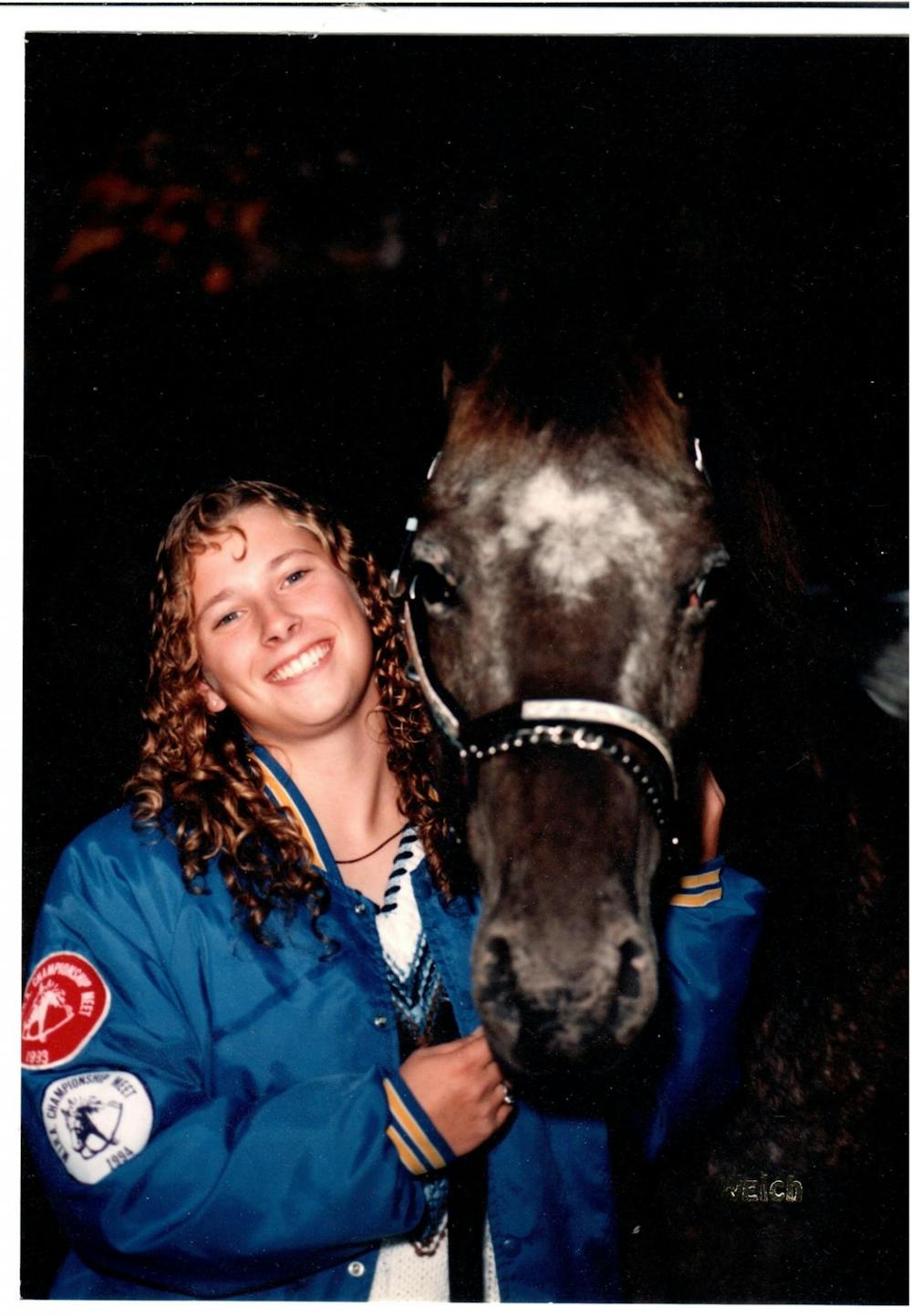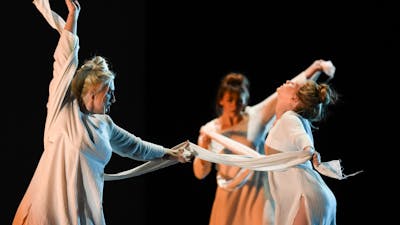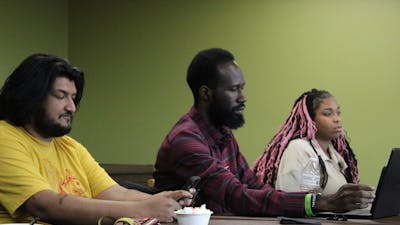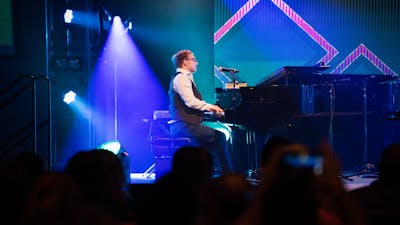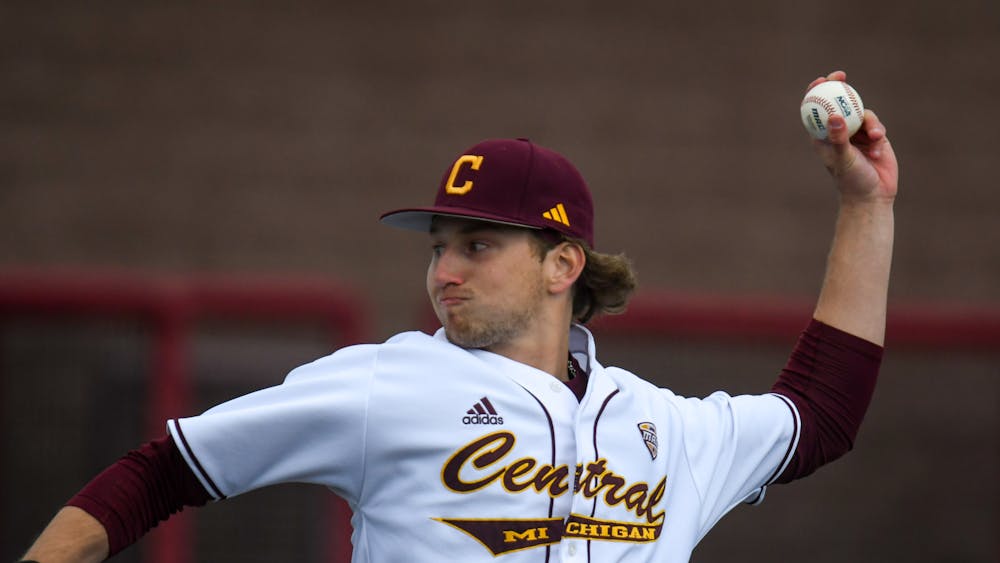Q&A: Meet Rebecca Rees, an ASL instructor at CMU
Becky Rees started her post graduate career as a horseback riding instructor. She succeeded the Horse Management Program at Michigan State University with an obstacle that her classmates didn't have to face.
She was born deaf.
Rees was running a horseback riding business during the summer but she had to close it down during the winter because the horses couldn't stand the cold Michigan winters. Rees initially started her American Sign Language teaching career in 2008 at Baker College to earn more funds for business to build an indoor riding facility. She ended up falling in love with teaching the language and she never looked back.
Rees has been an ASL Instructor in the Communication Disorders Department at Central Michigan University since the fall semester of 2011.
Rees teaches ASL at CMU to bridge the gap between the Deaf and hearing world on campus and to spread more awareness about the Deaf culture.
“A little bit of understanding and compassion can go a long way in improving this world” said Rees.
Rees sat down with a reporter to discuss her experience of living in the Deaf world.
How old are you and where are you from?
I'm 41 years old and was born and raised in Stanwood, Michigan, which is about 10-15 minutes south of Big Rapids.
What made you want to become an ASL teacher?
I became an ASL instructor by accident. Back in about 2005-2007, I was running a horse-back riding lesson program, but it had to be shut down during the winter because I didn't have an indoor arena and I never felt comfortable giving lessons during the winter. In 2007, I was talking to an interpreter who used to work for me, telling her how it was difficult to bring in income during the winter, and she suggested that I teach ASL at a local college. So I started teaching at Baker College of Muskegon during the winter of 2008. My goal was to be able to bring in enough money so that I could have an indoor arena built and continue giving horse-back riding lessons. Teaching ASL was supposed to be a temporary job, but I enjoyed it so much that I stopped giving horse-back riding lessons in 2010-2011 and started working for CMU when a position opened up. That indoor arena never got built.
When did you become deaf?
My sister and I were born deaf in both ears. It was determined our auditory nerves in both ears were damaged. My sister and I were the only ones deaf in our family. A doctor told my parents both my sister and I are perfect candidates for cochlear implants, but our family doctor told my parents that he wouldn't recommend having it done on us because it was a fairly new thing at the time and that if the implants didn't work, we'd lose any residual hearing we had at the time.
What was your education like growing up?
I was taught SEE (Signing Exact English) during preschool/kindergarten in a Deaf/Hard-of-Hearing program that Big Rapids school had at the time, and I was mainstreamed for most of my life other than having to go to the special resources room. I had to wear a phonic ear (an FM system) until I hit 8th grade and was able to persuade my speech therapist into allowing me to continue my schooling with just my hearing aids. Then I used interpreters for my high school graduation, and for all my college education.
How has your family adapted to your deafness?
Both my parents are hearing. My dad's favorite sign was "cookie," but both parents would sign simple signs, like good morning, good night, I love you, bathroom, time to go, you ok? My mom knew the fingerspelled alphabet. Mainly they spoke to me and my sister, and while there has been some communication break-downs, we got along well. My sister and I were taught to lip-read from a young age.
Where did you go to college and what was your degree?
I really wanted to become a veterinarian, but it was a difficult program. I ended up dropping out of pre-veterinary medicine at Ferris State University, organic chemistry was difficult. Then I took the Horse Management program at Michigan State University. After getting my certification, I felt I wasn't ready to move on so I continued to attend Michigan State University to earn my Bachelor's Degree in Animal Sciences with specialization in Agribusiness. When I started MSU, I met a Deaf lady who became a great friend and roommate to me. She signed pure ASL, so she taught me ASL as she hated SEE. During this time I met Kendra Miller, who also happens to be an ASL instructor at CMU, and is my current office buddy.
What are your thoughts on cochlear implants?
My view on cochlear implants are positive, but they have to be right for the person who uses it. In my case, I don't think they're a good fit for me until I get older. I live on a farm where I can get beat up, and because of where the implants are put in it can become extremely painful. I also used to scuba dive, and have thought about getting back into it, but I've been told that it is not advised to scuba dive with cochlear implants. I figured when I get older I'll be done with running a farm, and not excited about scuba-diving, so that would be a perfect time. I do have negative views of the doctors who constantly push CIs towards patients, saying it's the only thing that will "fix" the hearing issue.
How do you identify in the deaf community?
I don't know how I identify myself, whether it'd be Deaf or deaf. I didn't really grow up in a strong Deaf environment. In the time that I was at MSU was when I spent the most time in the Deaf world. Currently, anything Deaf culture-related I'm involved in is with CMU. My family is hearing, and I spend more time in the hearing world than I do in the Deaf world. There are no Deaf people living in my area. I'm okay with that, right now I'm much more family-orientated and would prefer to be with my family than spending time anywhere else. Right now, I consider myself hard of hearing.
